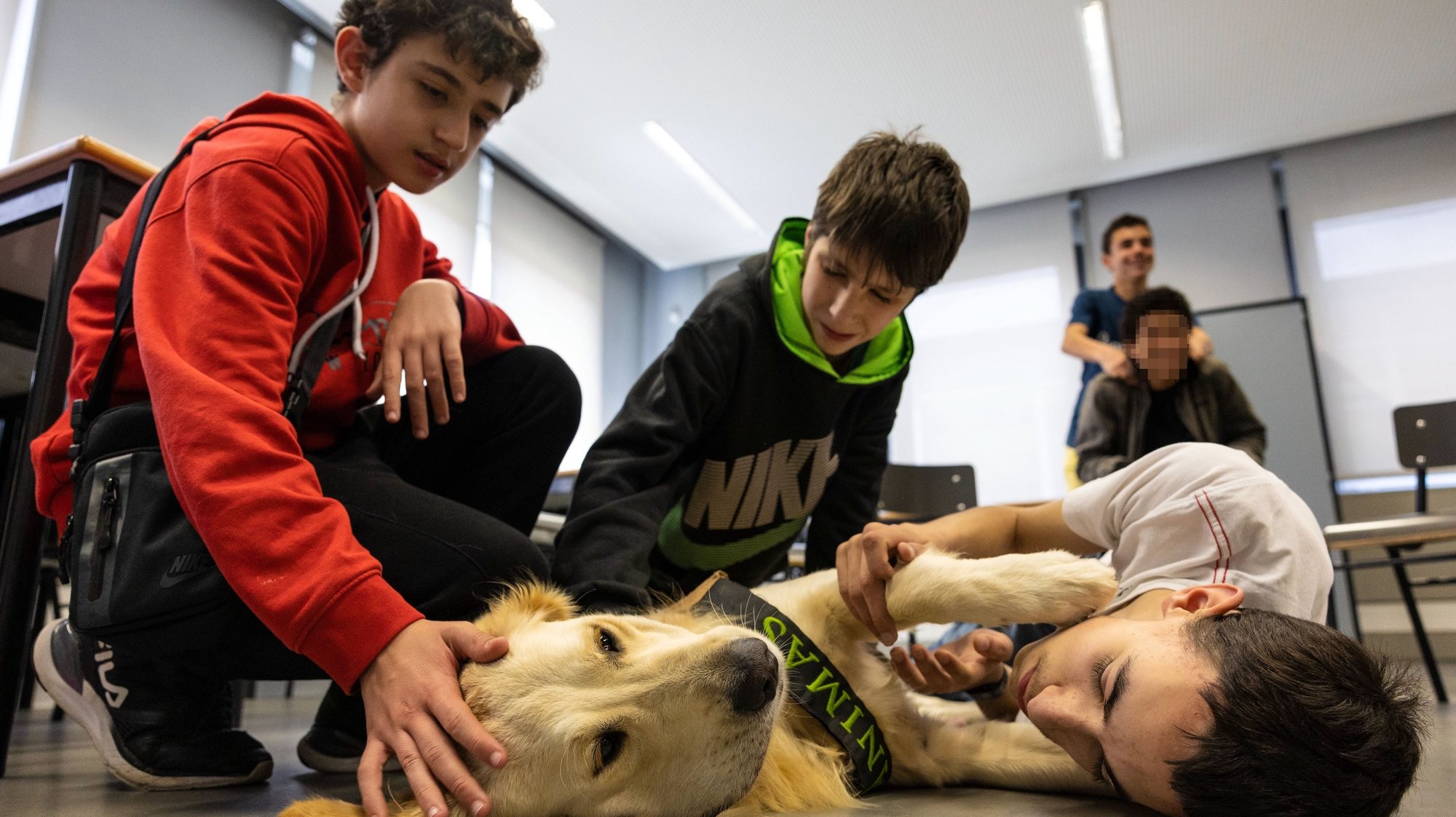An ongoing assistance dog project since December 2022 has helped six struggling students at Inês de Castro Secondary School, in Vila Nova de Gaia, improve grades, attendance and behaviour.
Lusa followed an hour in the life of five of the six students who, voluntarily, early Friday afternoon stopped playing to learn with the dogs of the Ânimas association and participated in the “Trust” project, this time interacting with Zazu, a two-year-old golden retriever.
In the conversation, the director Manuela Carvalho is quick to mention that it is “a pioneering project in the Portuguese public school”, and then explains that it is “students of the 3rd cycle and of the secondary school, aged between 13 and 16 years”. All the boys.
“Here the emotional side is stimulated much more and they are different. There is a total opposition between being on a daily basis and when they are interacting with Zazu, Ervilha or Feijão”, she added.
The psychologist Júlio França added: “these are students who had already been subjected to various types of interventions and the results were not as expected in terms of motivation, attendance and relationships between them. This project arises as a possibility to reach these children through an animal and this greatly favors motivation and adherence to tasks, to the work of socio-emotional skills and to the set of rules”.
Testifying that his adhesion to the project “was immediate and in terms of very good attendance”, he revealed that they currently have another problem, that “there are more students wanting to participate”, an impractical desire because interactions with dogs “only work in a small group,” he said.
Catarina Cascais is the one who appears weekly at 2:00 p.m. with the dog and explained to Lusa that the project aims to “work on social and school skills (…) by changing behavior patterns.”
“They are students who have no connection between them other than the one that began to be built here in the project. What we intend to work on is a series of benefits in terms of social anxiety”, she added, before pointing out that the fact that dogs do not “judge” generates “a judgment-free environment where [os alunos] They are able to work on mutual respect, self-love and, through interaction with the dog, work on self-esteem, methodology, patience and resistance to frustration”.
The animal’s guardian also stressed that in the case of young people with behavioral problems “interaction with the dog allows them to lower their defenses.”
“Everyone has a behavioral problem and, in general, they have inappropriate behavior patterns (…) such as missing classes, discipline, aggressiveness, a lot of demotivation and we intend to counteract that a bit by bringing a more playful activity. to school, from their point of view, to then teach them adaptive behavior patterns”, continues the Animas volunteer.
Five months later, he said, regarding the results, what has been reported “is that the motivation for school is already increasing, there is an improvement in grades and a decrease in aggressiveness among them,” revealed Catarina Cascais.
More available to interact with the dog than willing to talk to Lusa, Filipe, 14, an 8th grade student, revealed that he had learned “to be patient, to be calm, to know how to wait and to love others”. while next to him, Martim, 13, a 7th grade student, said that he “learned to be calm, not to get angry and not to yell in class”, confessing, however, that this “only happens on days when you are with Zazu”.
“It would be useful for me to have Zazú at school more often,” he confessed before everyone fell to the ground in a hug with the dog that made them a group eager to change.
Source: Observadora
